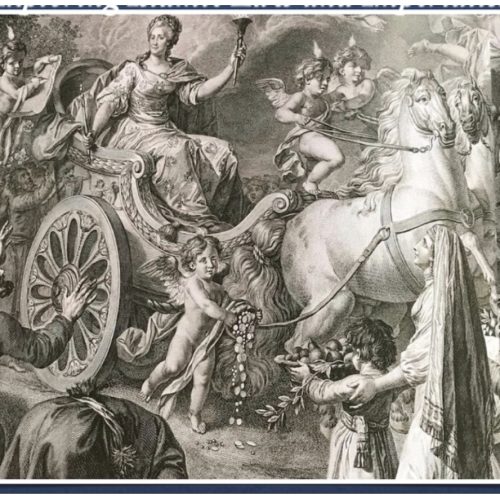
And we’re off! Fall 2018 was a stellar term for the IIS. With faculty and graduate students from all three UofT campuses, a global cohort of faculty visiting Toronto, and community partners that now see the IIS as an institutional ally, the Institute’s seminar room was nothing short of lively. Faculty from across the UofT presented their works in progress, showcasing the diverse methodological and disciplinary range that UofT’s world class faculty employ to study Islam and Muslims across time and space.
New Faces
One of the first things you will notice when you walk into the IIS is the face of Nambogga Sewali, the full time administrator of the IIS. Part business officer, part events coordinator, part communications coordinator, Nambogga does it all and with a smile. Please be sure to introduce yourself to her when you visit our offices.
This year, we were happy to welcome to the office two post-doctoral fellows, both of whom have been featured on our website’s Spotlight. Albert Frolov comes to us as a scholar at risk having had to flee his home country of Kazakhstan for his research and writing on Turkey and its religious movements. Catherine Larouche is a post-doctoral fellow in anthropology who works on South Asia, Islam and philanthropy. Albert and Catherine have added their enthusiasm and energy to the ambiance of the IIS and we are delighted to count them as part of our vibrant community.
Research Lab Liftoff: The Study of Islam and Muslims in Canada (SIMiC)
The IIS began the fall term with an initial boost for its first research lab, The Study of Islam and Muslims in Canada (SIMiC). Jennifer Selby (Memorial University, NL) and Amélie Barras (York U) inaugurated our institutional conversation with a discussion on their new book, Beyond Accommodation: Everyday Narratives of Muslim Canadians. Attracting a standing-room only crowd, colleagues from across the GTA attended the talk, probing the scope and limits of accommodation in Canadian culture and law.
On September 28, 2018, the IIS convened a day-long workshop of 8 Canadian researchers and 4 community partners to develop a partnership that would leverage the excellence of advanced research toward a more engaged, robust, and representative public debate on Islam and Muslims. Colleagues Ayesha Chaudhry (UBC), Abdie Kazemipur (U.Calgary), Jasmine Zine (WLU), Amélie Barras (York U), Faisal Bhabha (York U), Jennifer Selby (Memorial Univ), Paul Eid (UQAM) and Valérie Amiraux (UdeM), joined representatives from The Tessellate Institute, National Council of Canadian Muslims, The Canadian-Muslim Vote and Inspirit Foundation to break new ground on a project that brings together academics and community organizations to reflect on the contribution public universities like UofT can make to the scope and quality of Canada’s democratic public sphere. The collaborative spirit in the room created the possibility for new projects that are currently taking shape in a series of grant applications to create archival data bases to support qualitative histories of Muslims in Canada, and data-set generating projects that enhance an intersectional appreciation of the demographic presence of Muslims across the GTA. Leading a team comprised of seven university partners, multiple community partners, and Canada-wide scholars, the IIS will serve as the institutional headquarters for a national project that will better inform a democratic sphere that all too often suffers from the travails of paranoia and fear.
Capping off the workshop, Valérie Amiraux (Univ of Montreal) treated the group to a dynamic discussion on her recent ethnographic research on Muslim women in Quebec who remove their headcoverings. Interrogating the limits of liberal rights tradition, Amiraux suggested that Quebec policies on secularism make principles of privacy virtually impossible for pious Muslim women.
To support the lab going forward, the IIS issued an open call for applications for a post-doctoral fellow. We received 86 applications for one position, and will formally announce the successful candidate in the new year.
Faculty Workshops
Since September, each month brought new colleagues to the IIS to share insights on their research and provoke a vibrant conversation on disciplinary orientations to the study of Islam. Rania Salem (Sociology) kick-started the faculty research workshop with her study of women’s attitudes to labor force participation in Qatar. Heba Moustafa (History of Art) impressed all of us with her history of the green dome, the original of which can only be found in traces in manuscripts. Her study raised profound methodological questions for the history of art and architecture in Islam, not to mention disciplinary formations for the study of Islam generally. Haytham Bahoora (Comp Lit/NMC) introduced us to the world of Iraqi art and material culture through an introduction to the work of Iraqi artist Jawad Salim. Natalie Rothman (History/UTSC) forced us to reconsider the ambit of Orientalism as a theoretical construct through her insightful and provocative study of Ottoman Dragomans and their writings, correspondence, and treatises on the Ottoman language. We were also fortunate to host Jean-Michel Landry, a post-doctoral fellow at McGill, whose examination of ethics instructions in a Shi’a seminary in Lebanon offered various insights into the anthropological discourse on ethics more broadly.
Academe as Profession
Training graduate students to be tomorrow’s intellectual leaders is among the various aims of the Academe as Profession workshop. We began the year helping graduate students develop their grant writing skills, which will most certainly serve them well into the future. Organized by PhD student Parnia Vafaeikia (Study of Religion), students benefitted from the insights of Dr. Jane Freeman (SGS@UofT) who shared with them strategies of writing and succeeding in the competitive granting process. UofT alum Dr. Amir Hussain (Loyola Marymount University of Los Angeles) and former editor of the Journal of the American Academy of Religion, introduced graduate students to the processes of peer review journal publication. He also shared his new and exciting project, The Encyclopedia of Islam in North America for which he serves as editor, and sought insight from our faculty and graduate students in its design and content. Digital Humanities, also known as DH, is now a significant part of the programming for the humanities. Natalie Rothman (History/UTSC) led an important discussion for our students on DH. She offered important insights into the challenge, pros, and cons of creating large scale projects based on her own experience leading such endeavors. The IIS is also grateful to PhD Student Adil Mawani (Study of Religion) for leading a weekly dissertation writing session. For two or three hour per week, he kept a pot of coffee warm for a devoted group of ABD students who made progress on their own work while in community with each other.
A View Forward
As the 2018 calendar year comes a close, it was fitting that our last event involved the future. On Monday, December 17, 2018, the IIS welcomed 10 second grade students (aged 6-7) from Humberside Montessori School. Their teacher organizes a world history program for this young age group to help them understand how human beings organized themselves, collected knowledge, and passed it on. Using the Book of Kells as an entry point, students spent their fall term learning about illuminated manuscripts and decorative arts, as well as what we academics would call the material culture around book production. At the IIS, the students were introduced to a range of illuminated manuscript traditions from the Ottoman, Persian, Byzantine, and Latin West, in reproduced facsimile format. They encountered Latin, Greek, Persian, Arabic, and Ottoman Turkish for the first time, many of them using tracing paper to sketch the curves and intersections of intricate calligraphic design. Working with Robarts Library, the IIS was able to organize a quick tour of the Fisher Rare Book room, where librarian David Fernandez had samples of leather and vellum for them to touch. In addition, these young students were introduced to the high-tech world of book preservation.
With this final opportunity to shape young minds, the IIS now closes its doors for the holiday season. I want to thank all of you who have made the IIS your home this semester as we rebooted it in new and exciting ways. For some, the IIS has become a place to learn new things. For others, it is a space to get insight into the nature of academic life. And for yet others, it was a space to experiment with new approaches to Islamic studies in an interdisciplinary environment that is sometimes hard to produce in the corners of our home departments. Moreover, the IIS served as a meeting point for a range of community partners seeking to gain insights from the excellence our colleagues provide, as they translate those insights for more public consumption.
Starting in January, we will feature a series of research workshop and professional training sessions. We look forward to inaugurating new a new coffee-house mode of informal discussion and announcing new partnerships as they become formalized in the coming months. And we are especially delighted to host our inaugural visiting lecturer, Dr. Brinkley Messick, who will be with us for the week of March 4th. And also, be sure to mark your calendars for June 17-19, 2019, when the IIS will host the 10th annual Ibadi Studies Conference here at the UofT. For more information on our activities, or to subscribe to our email list, visit our website at https://islamicstudies.artsci.utoronto.ca//.
All of us at the IIS wish you a happy holiday season and look forward to seeing you back at the seminar room in the new year.




